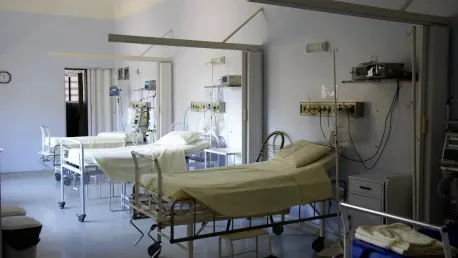Dunedin Hospital’s sterilization processes are under intense scrutiny following the revelations of a leaked report from Te Whatu Ora, New Zealand’s central health agency, which identifies significant failures at the hospital’s sterilization center. This report brings to light the alarming number of contaminated theater equipment incidents reported by staff and the hospital’s Central Sterile Services Department’s (CSSD) inability to meet required operational standards.
Contaminated Equipment Incidents
Annually, approximately 500 incidents of contaminated equipment intended for surgical use are reported by staff at Dunedin Hospital. These frequent occurrences are troubling, but even more concerning is the revelation that in 2021 alone, five surgeries began before the medical team realized the instruments were not properly sterilized. Such incidents raise serious concerns about patient safety. Although Te Whatu Ora has not disclosed whether any of these incidents resulted in direct patient harm, an Official Information Act request aimed at providing a more detailed public response is pending, expected within 20 working days.
Systemic Issues and Past Attempts at Resolution
The report emphasizes that the issues within the CSSD are systemic and ongoing. Despite previous attempts to address these problems, including a reassessment project in 2022, progress has been stymied primarily due to escalating costs. In June, Te Whatu Ora’s Intensive Support Team paid a visit and underscored the necessity of upgrading sterilization facilities, labeling it as a “critical project for Te Waipounamu.” Consequently, a detailed business case was developed, with Health NZ working towards securing the required funding for these essential refurbishments.
Health Minister’s Response and Government Health Targets
Health Minister Shane Reti has acknowledged persistent issues in Health New Zealand’s ability to provide adequate health services, particularly in the Southern region. His response suggests an urgent need to enforce government health targets to ensure faster assessment and treatment processes, aiming to address these systemic failures, which he attributes to previous administrations. By enforcing these targets, Reti hopes to rectify the longstanding dysfunctions within the system.
Cost Management and Planned Developments
A notable focus of the ongoing discussions is cost management and capital review. All capital development projects are currently under scrutiny, with Lester Levy, the new commissioner who replaced the sacked board of Te Whatu Ora, advocating for a comprehensive review of all development projects. There are also expectations that the new Dunedin Hospital, which is under construction, will help mitigate these issues by incorporating a modern, compliant sterilization unit.
Summary and Conclusion
Dunedin Hospital’s sterilization processes have come under severe scrutiny following a leaked report from Te Whatu Ora, New Zealand’s central health agency, which highlighted grave deficiencies in the hospital’s sterilization center. According to the report, there have been numerous alarming incidents involving contaminated surgical equipment, all of which have been reported by concerned staff members. The hospital’s Central Sterile Services Department (CSSD) has come under fire for its failure to maintain the operational standards necessary for ensuring patient safety.
The controversy underscores the pressing need for Dunedin Hospital to address these critical lapses in sterilization procedures. Staff have voiced their frustration and anxiety over the risks posed to both patients and healthcare providers. The report has not only shed light on existing issues but also emphasized the urgency for systemic improvements to prevent future lapses. The health and safety of patients depend on the rigorous adherence to sterilization protocols, making it imperative for Dunedin Hospital to take immediate corrective measures and restore confidence in its CSSD operations.









